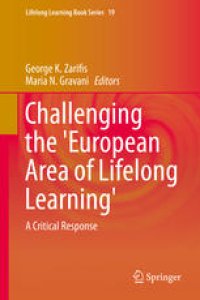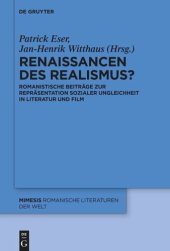
Ebook: Challenging the 'European Area of Lifelong Learning': A Critical Response
- Tags: Lifelong Learning/Adult Education, Educational Policy and Politics, Teaching and Teacher Education
- Series: Lifelong Learning Book Series 19
- Year: 2014
- Publisher: Springer Netherlands
- Edition: 1
- Language: English
- pdf
This book critically reflects on the context in which lifelong learning policies and practices are organized in Europe with contributions of researchers and policy makers in the field. Through a critical lens the book reinterprets the core content of the messages that are conveyed by the European Commission in the “Memorandum for Lifelong Learning”, the most important policy document in the area, which after a decade from its publication still remains the vehicle for all current developments in lifelong learning in Europe. With references to research findings, proposed actions, and applications to immediate practice that have an added value for Europeans –but which either do not appear to correspond directly to what is stipulated by the European Commission, or are completely ignored as part of the lifelong learning process– the book offers an analytic and systematic outlook of the main challenges in creating the ‘European Area of Lifelong Learning’. In times as decisive as the ones we are going through today (both in social and economic terms), a critical perspective of the practices and policies adopted by the EU Member States is essential. The book follows the same structure as the Memorandum in order to debate and critically approach in separate sections the core issues that Europe faces today in relation to the idea of making a ‘European area of Lifelong Learning’.
This book critically reflects on the context in which lifelong learning policies and practices are organized in Europe with contributions of researchers and policy makers in the field. Through a critical lens the book reinterprets the core content of the messages that are conveyed by the European Commission in the “Memorandum for Lifelong Learning”, the most important policy document in the area, which after a decade from its publication still remains the vehicle for all current developments in lifelong learning in Europe. With references to research findings, proposed actions, and applications to immediate practice that have an added value for Europeans –but which either do not appear to correspond directly to what is stipulated by the European Commission, or are completely ignored as part of the lifelong learning process– the book offers an analytic and systematic outlook of the main challenges in creating the ‘European Area of Lifelong Learning’. In times as decisive as the ones we are going through today (both in social and economic terms), a critical perspective of the practices and policies adopted by the EU Member States is essential. The book follows the same structure as the Memorandum in order to debate and critically approach in separate sections the core issues that Europe faces today in relation to the idea of making a ‘European area of Lifelong Learning’.








